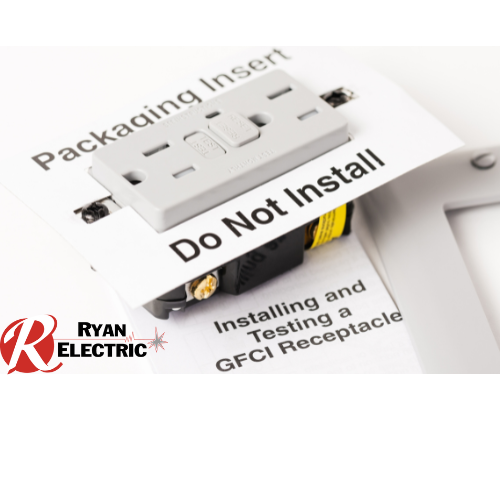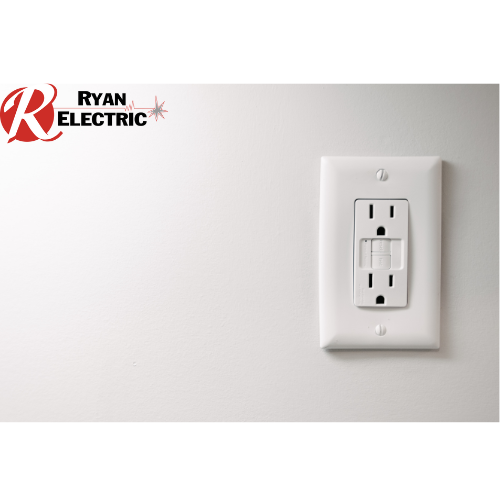Inspection
What To Expect During an Electrical Inspection
Schedule Service
Inspection at Ryan Electric
During an electrical inspection, our team of experienced electricians at Ryan Electric will carefully examine all aspects of your electrical system to ensure it is functioning correctly and is up to code. From checking the wiring and outlets for any signs of wear or damage to testing the circuit breakers and grounding system, we leave no stone unturned in our inspection process.
Our electricians will also assess the overall safety of your electrical setup, making sure that all safety measures are in place to prevent any potential hazards. Additionally, they will evaluate the energy efficiency of your system and provide recommendations on how you can improve it to save energy and reduce your electricity bills.
At the end of the inspection, our electricians will provide you with a detailed report of their findings, highlighting any issues that need immediate attention and suggesting any upgrades or repairs that may be beneficial. Your safety and satisfaction are our top priorities, and we are committed to ensuring that your electrical system is in the best possible condition for your peace of mind.

1. Inspection Checks – Have a Professional from Ryan Electric Inspect Your Electrical System:
- The inspector will validate that your home or building is equipped with appropriate circuits for all essential appliances and systems.
- This involves confirming that high-power appliances such as ovens, dryers, and air conditioners have dedicated circuits capable of meeting their energy needs.
- Furthermore, the inspector will inspect the circuits to ensure an even distribution of the load, preventing any risk of overloading.
2. Inspection Results – What Needs Correction:
- Inadequate Circuitry: The inspector will suggest adding more circuits if they are overloaded or improperly shared.
- Improper Wiring: Recommendations for replacing outdated or damaged wiring with modern, safer alternatives will be provided.

3. Inspection of Proper Circuits
Confirming that your property has appropriate circuits for major appliances and systems. This involves ensuring that heavy-duty appliances like ovens, dryers, and air conditioners have dedicated circuits capable of handling their power needs. The inspector will also assess load distribution across circuits to prevent overloads.
Areas for Improvement:
If circuits are overloaded or shared incorrectly, the inspector may suggest adding more circuits.
Improper Wiring:
Identifying outdated or damaged wiring and recommending modern, safer replacements.
4. GFCI & AFCI Circuit Protection:
- Ground Fault Circuit Interrupters (GFCIs) and Arc Fault Circuit Interrupters (AFCIs) are crucial safety mechanisms that guard against electrical hazards.
- Inspectors will verify the presence of GFCIs in high-moisture zones like kitchens, bathrooms, and outdoor spots. AFCIs in bedrooms and living areas will be examined to prevent arc faults that may lead to fires.
Areas for Correction:
- Missing GFCIs/AFCIs: If these protective devices are absent in required locations, the inspector will recommend their installation.
- Non-functional Devices: Existing GFCIs and AFCIs will be tested for proper operation, and any faulty units will require replacement.
Your Ryan Electric inspector will also check for proper installation of GFCIs and AFCIs to ensure they are correctly wired and functioning as intended. It is important that these devices are installed according to electrical code requirements to guarantee effective protection against electric shocks and potential fire hazards. Additionally, inspectors may provide guidance on the importance of regular testing and maintenance of GFCIs and AFCIs to homeowners to ensure continued safety within the property.
5. Electrical Boxes
What the Inspector Looks For:
Electrical boxes serve as enclosures for connections and devices such as switches, outlets, and fixtures. During inspections, it is essential to verify that all electrical boxes are correctly installed, appropriately sized for the wires and devices they contain, and securely attached.
What Needs Correction:
- Improperly Sized Boxes: Boxes that are too small for the number of wires or devices they house will need to be replaced with appropriately sized ones.
- Loose or Damaged Boxes: Loose or damaged boxes will need to be repaired or replaced to ensure safety and compliance.
Inspectors will also examine the boxes to ensure they are free from any damage or flaws that could potentially create safety risks. The inspection will include evaluating proper grounding and bonding to safeguard the electrical system and its users. Accessibility for maintenance and repairs, along with compliance with building codes and regulations, is crucial for electrical boxes. Adhering to these standards helps uphold a safe and operational electrical system within residential and commercial properties.
6. Cables & Wires
What the Inspector Looks For:
The inspection will include a thorough examination of all cables and wires in the electrical system. This includes checking for correct wire gauge, ensuring that all wiring is properly insulated and free from damage, and verifying that wires are properly secured and protected.
What Needs Correction:
- Damaged Insulation: Wires with damaged insulation pose a significant risk of electrical shock and fire and will need to be replaced.
- Improper Wire Gauging: If the wire gauge is insufficient for the electrical load it carries, the inspector will recommend upgrading to a proper gauge.
- Unsecured Wiring: Wires that are not properly secured or protected will need to be correctly fastened and shielded to prevent damage.
Ryan Electric Inspection Criteria & Areas for Improvement
Ground Fault Circuit Interrupter (GFCI) Protection: Required locations (kitchens, bathrooms, outdoors) & Installation and functionality checks
Arc Fault Circuit Interrupter (AFCI) Protection: Required locations (bedrooms, living areas)Installation and functionality checks
Inspector’s Focus: Proper installation and sizing & Secure and accessible placements
Areas for Correction: Missing or improperly installed boxes & Overcrowded or damaged boxes
Inspector’s Examination: Appropriate type and size of cables and wires & Secure routing and connections
Areas needing Correction: Outdated or damaged cables and wires & Incorrect connections or routing
Importance of surge protection: Safeguarding appliances and electronics & Preventing damage from power surges
Inspector’s Checklist: Proper surge protector installation & Whole-house or point-of-use protection coverage
Areas needing Correction: Absence or inadequacy of surge protection & Ensuring a safe and compliant electrical system


